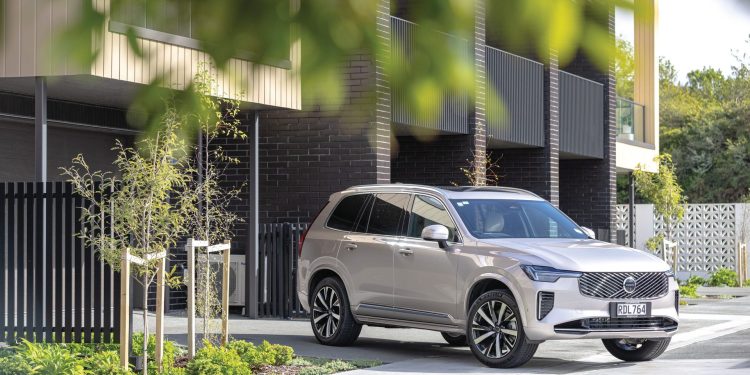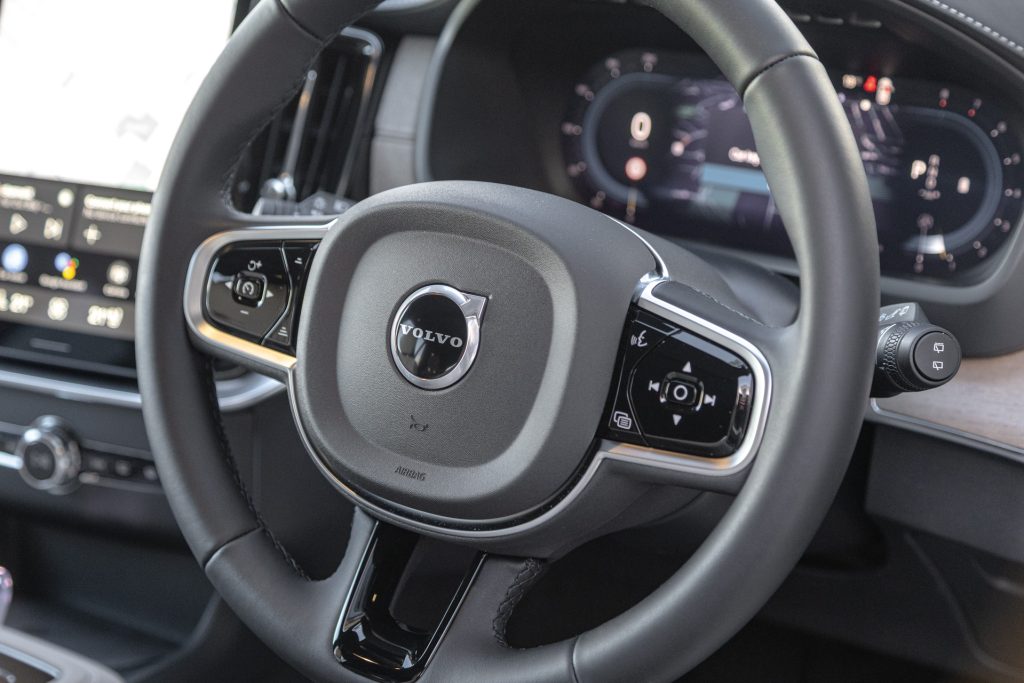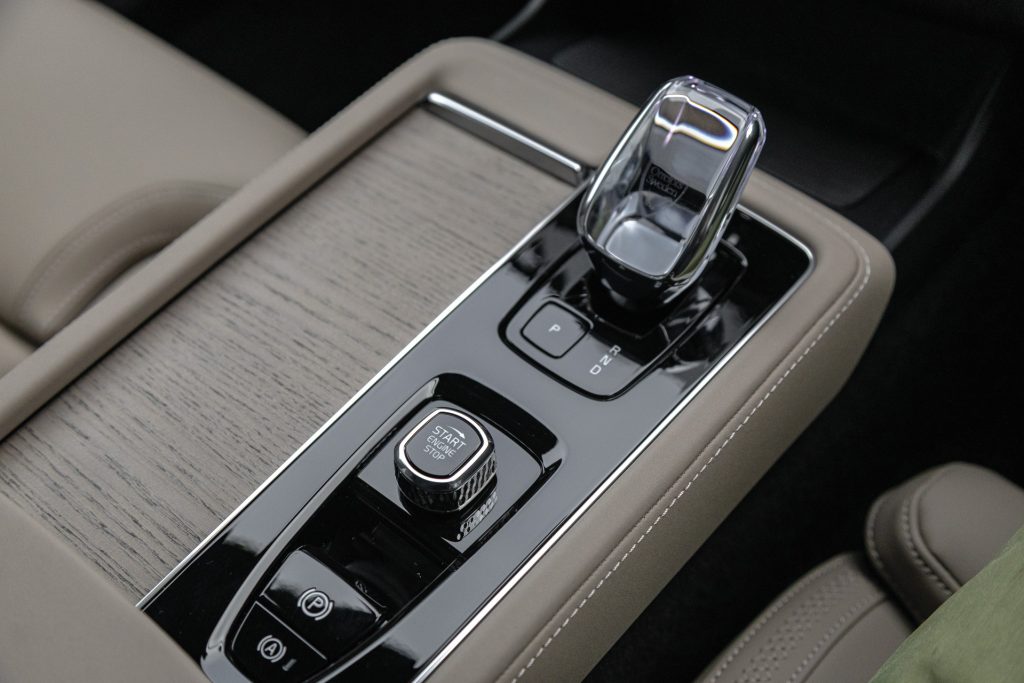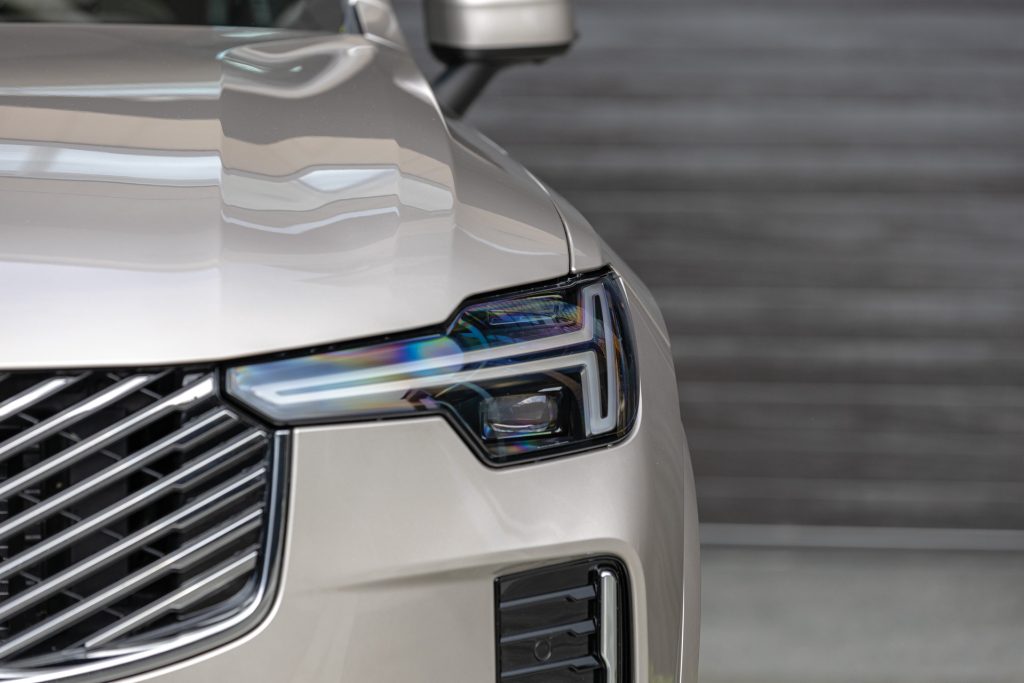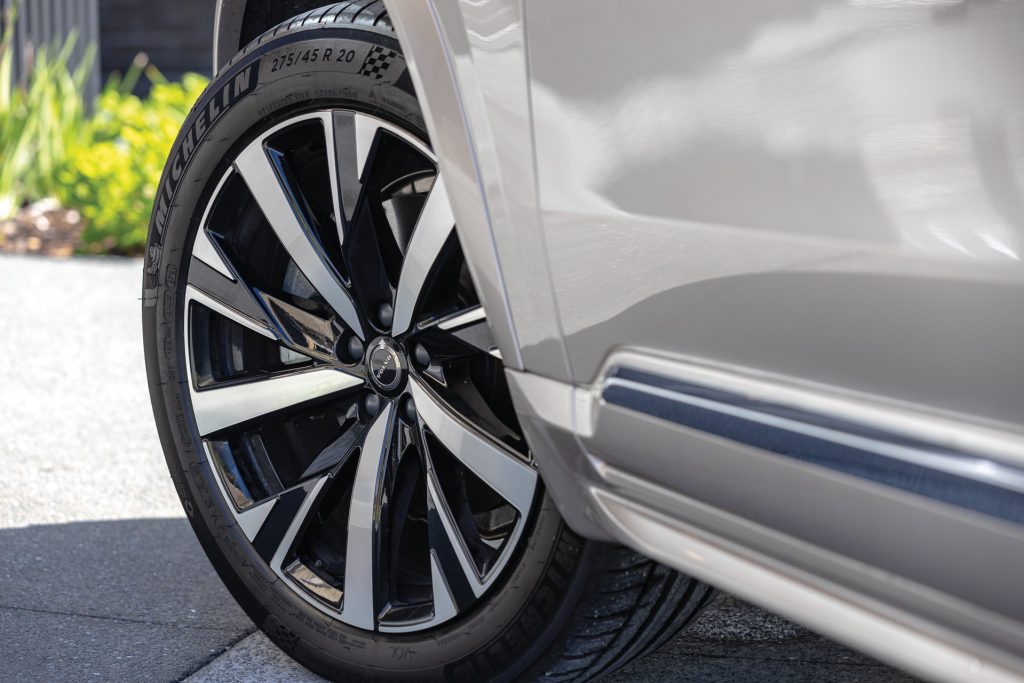2025 Volvo XC90 B5 Ultra Bright Review
Words: Kyle Cassidy | Photos: Alex Schultz
The Volvo XC90 undergoes another revision as it enters its second decade. Is it still a viable option for those after a premium seven-seat SUV?
It was back in 2015 that the Volvo XC90 made quite the impression, taking away our overall Car of the Year award. And ten years later, the XC90 is still trucking along. Volvo’s seven seater has a reputation for longevity in the market. The original went 13 years before this second-generation offering arrived. And now as it enters its second decade, Volvo has given it a thorough freshening. However, that wasn’t the original plan. The XC90 was intended to be replaced by the EX90, the battery-powered model that was recently crowned the World Luxury Car of the Year (but not scheduled for arrival here until 2026). You may recall the firm declaring an end to ICE motivation from 2030, and then, like many manufacturers, it rolled those comments back to adjust to market demand for EVs. And so Volvo will continue to sell hybrid models for the foreseeable future, the XC90’s retirement party delayed for a few more years yet.
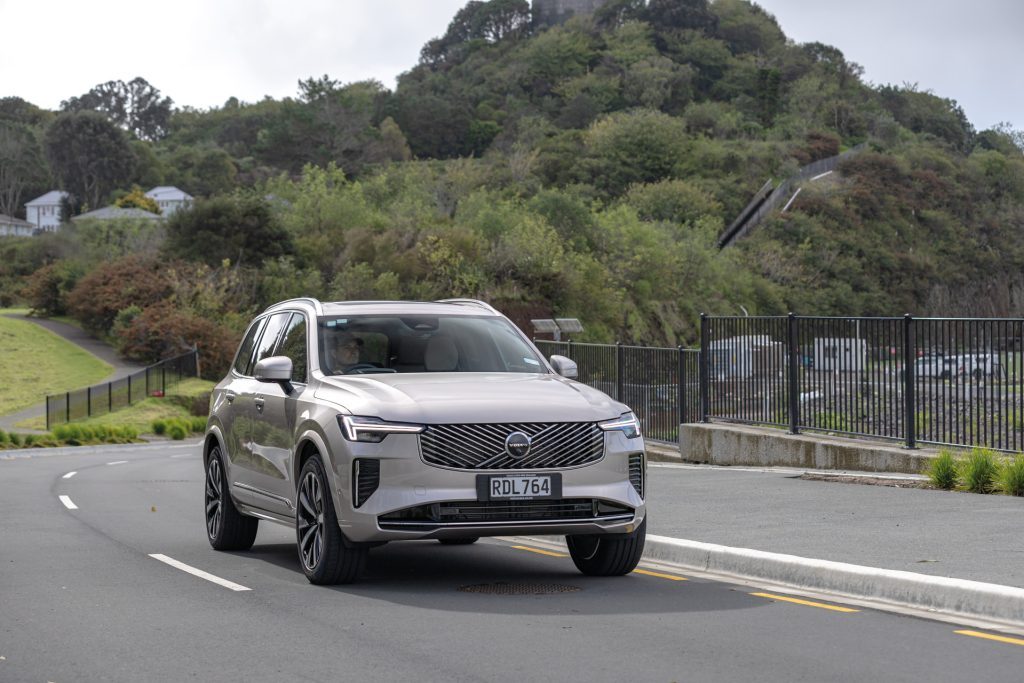
But is a luxury SUV with ten candles on its birthday cake still competitive in today’s market place? Pricing helps; the revised model is slightly cheaper now. This B5 Ultra Bright costs $112,990, $2k less than the old model. While it gains a bit more on the spec sheet, you’re now getting the lesser 184kW tune of the mild hybrid 2.0-litre. The other option is the T8 Ultra Dark Plug-in Hybrid, although this has snuck up in price to $161,990. It does get a better plug-in driveline, however, with a 70km electric range.
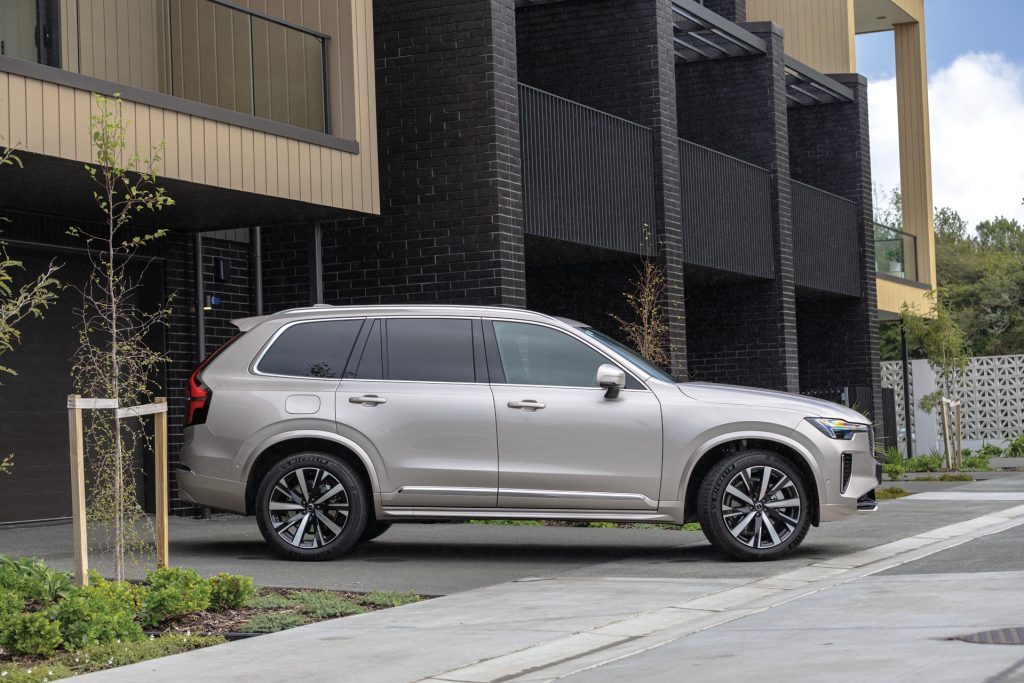
So what’s new?
Volvo has given both the exterior and interior an update, which it says makes the XC90 ‘more contemporary and luxurious in line with the new generation of fully electric SUVs’. From the front is where you’ll notice the biggest change with a new grille (or front air intake graphic as the designer would call it), updated bumper and guards and a more sculpted bonnet. The T-shaped headlights take on a revised, slimmer appearance too, and come with Matrix-design LED technology. Wheel and taillight titivation complete the makeover. This B5 Ultra Bright is highlighted with chrome accents, while the T8 Ultra Dark gets the blacked out treatment. The latter looks better, especially on that intake graphic.
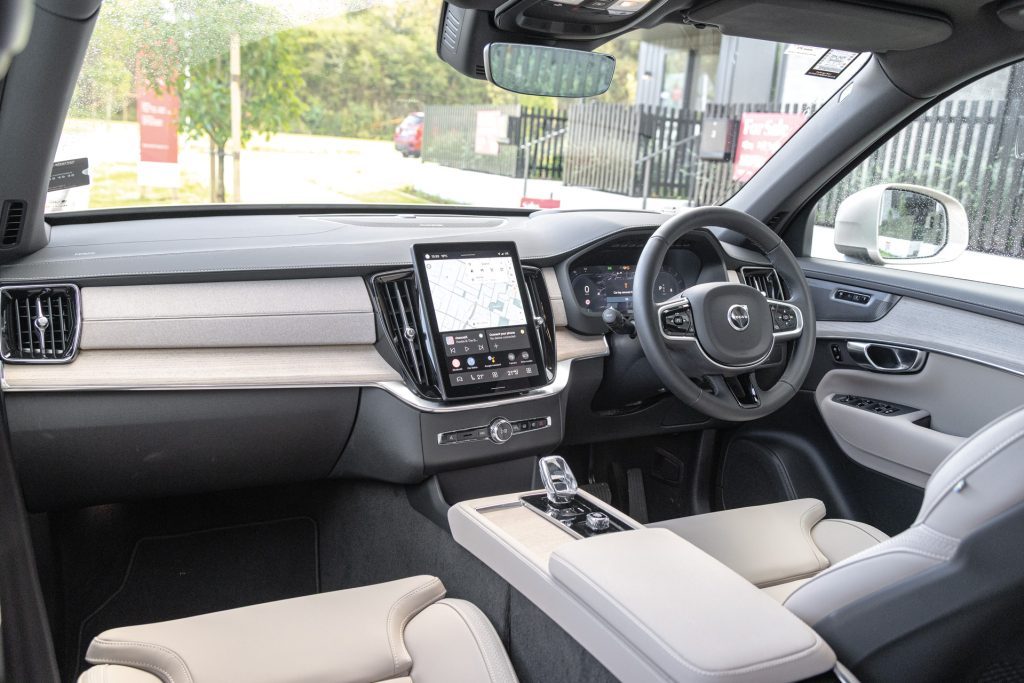
Interior renovated too
The cabin has been spruced with new panels tacked on to the dash and doors, a revised centre console and fresh decor. Cabin quality and premium ambience remain up to the mark. The light-coloured Cardamom trim, a new choice, is suitably Swedish, though will look a little the worse for wear after a year of family life. XC90 was an early adopter of the minimal button approach, and now the overlording touchscreen has been enlarged with a new 11.2-inch display sitting proud of the dash. It’s a more pixel-dense screen which boasts a new user interface. The home screen shows maps, media and phone functions, meaning fewer taps to access the most used functions. And you don’t have to leave the map page to change your music like you had to with the old system.
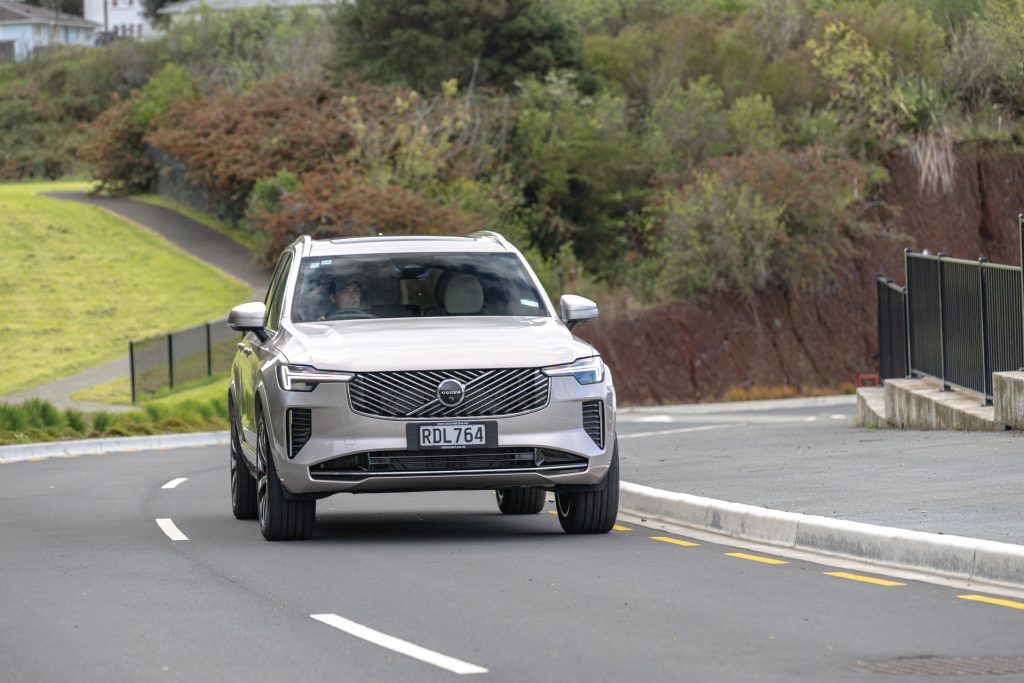
It’s still Google enabled, which will be off-putting for those digital privacy advocates. The voice-activated Google Assistant can perform some of the more menial tasks to save you tapping at the screen. Navigation is via Google maps, so has superior real-time traffic info for the best route home when things go wrong. You also get a four-year subscription to the Digital Services package with all data included. There’s an upgraded wireless phone charger but having only one seems mean these days. And there’s also the air purifier, four-zone climate control, head-up display, heated seats front and rear and a wheel warmer. Figure also on a panoramic roof and Harman Kardon premium sounds.
Helping keep the XC90 viable is its interior versatility. It fits seven inside, the seating arrangement sliding to help everyone fit. With a trio of individual seats, three average-sized Joes should fit across the middle row. The sixth and seventh seats are pretty good too, accommodating lanky teenaged bipeds, while there’s enough room left over in behind for a couple of furry quadrupeds to lay comfortably. In five-seater mode, the hold is wide and deep, good for 680L.
Mild in nature
Being a mild hybrid, the stop/start function is quick and unobtrusive. The 10kW/40Nm integrated starter generator gives a small boost to proceedings so the 2.0-litre’s 360Nm feels sufficient for commuting. Consumption they rate at 8.1L/100km while this vehicle’s long term average was tracking at 10.1L/100km.
Another new addition is frequency selective dampers for improved ride comfort, while still managing the body movements at speed. These work well on highway roads for a smooth ride, and while the urban progress is okay, they don’t soak up the sharper edges quite as well. It’s not so bad you’d contemplate the $4000 air suspender option however.
The steering is commendably light but still with three turns between the stops. A turning circle of 12.1m is large though. The parking camera’s 360 degree image isn’t as seamless as in newer models but the bigger screen lets you have a split view with both the regular reversing image and surround view shown at the same time.
Refinement and ease are prioritised on highway roads, but it steers well enough, resists the urge to push (with a little help from the stability aids) and manages to deal with bumps and body roll. Volvo dispensed with myriad drive modes a while back and they aren’t missed. The auto goes alright, though you can still pick the gears yourself if you so choose. Road noise is subdued on coarse chip surfaces.
Given its age, this is a ‘new’ Volvo without five stars as its ANCAP rating has expired since it was tested in 2015. It’s missing things like a centre air bag and some of the more active warnings like the overspeed alert and driver monitor (though we don’t really miss them at all). The active cruise is a smooth operator in traffic, and on the motorway.
What else is there?
Lucky for the XC90, some of its rivals from the prestige brands aren’t exactly new either, and all are more expensive. The Audi Q7 is brawnier but dearer (50TDI $159,990) and isn’t quite as roomy. The Discovery starts at $145k and while it’s more capable isn’t quite as urban friendly. And the Defender 130 is even more expensive. Other seven seaters from the luxo set like the X7 and GLS are near the $200k mark. Closer to XC90 money are much newer mainstream models like the top Santa Fe and Mazda CX-90, or Prado VX if you want something more rugged.
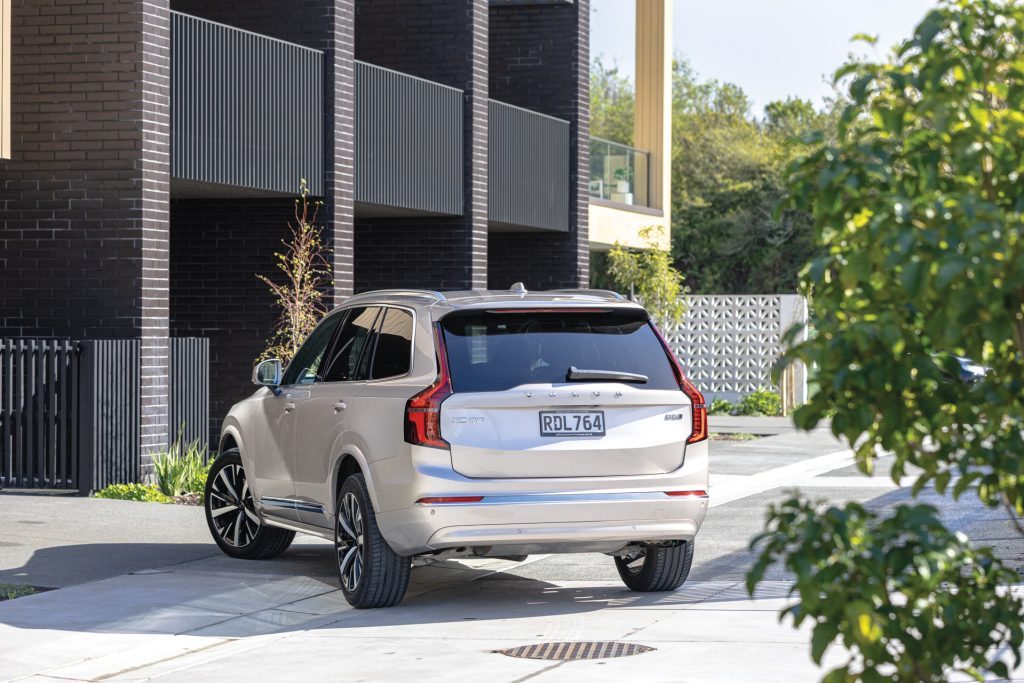
Volvo XC90 B5 Ultra Bright
$112,990 / 8.1L/100km / 180g/km
0-100 km/h 7.7s
Ambient cabin noise 71.0dB@100km/h
Engine 1969cc / IL4 / T / DI
Max power 184kW@5400-5700rpm
Max torque 360Nm@1600-3000rpm
Drivetrain 8-speed auto / on-demand AWD
Front suspension Wishbone / swaybar
Rear suspension Multilink / swaybar
Turning circle 12.1m (3.0 turns)
Front brakes Ventilated discs
Rear brakes Discs
Stability systems ABS, ESP, TV
Safety AEB, ACC, BSM, LDW, RCTA, ALK, AHB
Tyre size f/r-276/45ZR20
Wheelbase 2984mm
L/W/H 4953 / 1931 / 2146mm
Track f-1665mm r-1667mm
Fuel capacity 71L
Luggage capacity 302-680-2005L
Tow rating 750kg (2400kg braked)
Service intervals 12 months / 15,000km
Scheduled servicing 3yrs / 100,000km
Warranty 5yrs / 150,000km
ANCAP rating Not yet rated
Weight (claimed) 2080kg


